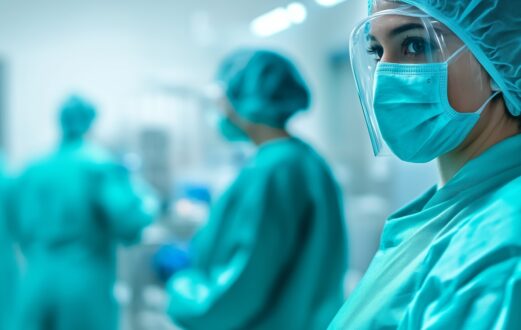If you are about to undergo surgery, you’ve probably heard that you’re supposed to avoid eating and drinking prior. But why does it matter? We’re breaking down the reasoning behind this rule and what you should know before surgery.
The answer lies in the anesthesia used in surgery. There are two types of anesthesia; local and general. Local is applied topically, often to numb an area so a patient doesn’t feel the procedure. General anesthesia renders a patient unconscious and unaware of what is happening.
The no food or drink rule typically applies to those who will receive general anesthesia as a part of their surgery. This is because when the anesthesia renders a patient unconscious, they lose their natural bodily reflexes. Any food or drink in the patient’s body could lead to aspiration. This is when food or stomach acid travels to the lungs making breathing difficult or impossible.
To avoid aspiration, patients should not eat or drink before the surgery.
How long should you fast before surgery
The length of fasting time before surgery depends on the type of procedure. Work with your surgeon to understand the proper length of time to wait and if there are any extra dietary restrictions.
As a general rule, we recommend not eating after midnight the night before your surgery. Clear liquids may be consumed before some surgeries, but be sure to work with your surgeon as they may have a specific recommendation.
Clear liquids include:
Water
Apple Juice
Black Coffee
Tea (without milk)
What happens if you accidentally eat or drink before surgery?
We get that mistakes happen. If your surgeon recommended fasting before your surgery and you accidentally ate, contact them right away. Depending on the length of time between your last meal or drink and the surgery, you may still be able to undergo the procedure on schedule.
However, in most cases, you will have to reschedule your surgery. While this can be frustrating, the risk of aspiration or complications during surgery should not be ignored. Always inform your doctor if you broke the fast.
What should you do if you’re a diabetic?
Diabetics have to eat or drink regularly to maintain healthy blood sugar levels. Because of this, fasting may be difficult or impossible. Work with your primary care doctor and your surgeon to understand what to do in cases of needing to fast before surgery.
The same advice goes for anyone with a medical condition that may be complicated by fasting. Inform your primary care doctor of any upcoming procedures to develop a plan of action.
Can you take your regular medications before surgery?
If you take a regular medication that requires food or drink when taken, be sure to work with your doctor. Your surgeon should also be informed of any regular medications or supplements you are taking. This is to ensure they will not interfere with the procedure. Your primary care doctor and surgeon will be able to make a recommendation for taking your medications prior to surgery.



